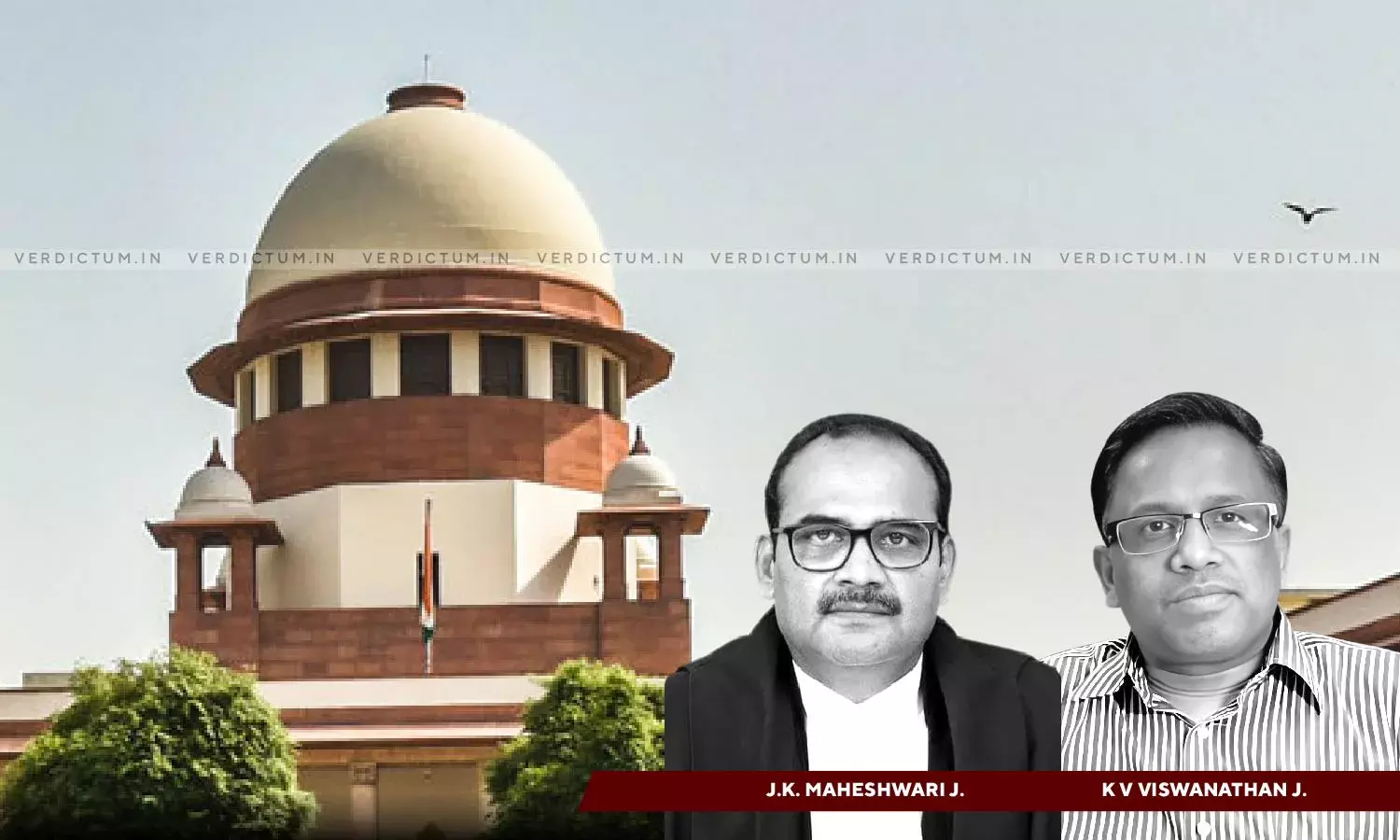A Rule Cannot Be Declared Ultra Vires Without Specific Pleading And Relief: Supreme Court

The Supreme Court allowed an appeal which challenged a judgment by the Orrisa High Court that had superseded certain directions issued by the Central Administrative Tribunal (CAT), in a writ petition. The respondent no. 1 before the Apex Court had filed a Writ Petition to challenge the CAT's order. In the writ petition, the vires of Rule 4(b) were not challenged, and no such relief was sought. However, the High Court declared Rule 4(b) invalid and issued several directions.
A two judge Bench of Justice J.K. Maheshwari and Justice K.V. Vishwanathan held that, “it is luculent that the respondent no. 1 did not set out any grounds to declare Rule 4(b) of the Rules as ultra vires. No such relief was even prayed for in the writ petition. The respondent no. 1 in the writ petition merely sought a writ in the nature of certiorari to set-aside the order of the CAT. Therefore in the given facts, there was no occasion for the High Court to declare Rule 4(b) as ultra vires.”
The Court held that it is trite law that for striking down the provisions of law or for declaring any rules as ultra vires, specific pleading to challenge the rules and asking of such relief ought to be made.
Senior Advocate R. Balasubramanian appeared for the Appellants and Advocate Shibashish Misra appeared for the Respondents.
At the time of filing Original Application before the CAT, the respondent no. 1 was working as Principal System Analyst (Scientist D) in the National Informatics Centre, Cuttack. A promotion policy known as Flexible Complementing Scheme (FCS) was introduced based on the 5th Pay Commission recommendations. In the course of the original application, the Ministry of Information Technology introduced rules for in-situ promotion of Scientific and Technical Group A posts. Rule 4 of these rules outlined an assessment procedure involving screening and interviews for promotions.
The respondent no. 1 was eligible for promotion to the post of 'Scientist E' after four years of service as 'Scientist D.' Despite being called for interviews in December 1999 and December 2000, she was not promoted, while her juniors were. The respondent no. 1 submitted representations requesting reconsideration of her case but was rejected.
The CAT disposed of the original application, directing the department to inform the respondent no. 1 why she was not promoted and suggesting clarity in promotion guidelines.
The order of the High Court was challenged in this appeal, primarily on the grounds that the vires of Rule 4(b) were declared without proper pleading and relief.
The Supreme Court set aside the High Court's declaration of Rule 4(b) as ultra vires, and the respondent no. 1's claim regarding her promotion was also not considered, as it did not arise with the validity of Rule 4(b).
“Since we have set aside the declaration of the High Court holding Rule 4(b) to be invalid consequently, the grievance of the respondent no. 1 about any illegality in denial of promotion to her also does not arise. No case has been made out as to how in the event of Rule 4(b) being valid, how the denial of promotion to her was unjustified for in the years 1999, 2000 and for the years before 2007.”
The Court noted that the Flexible Complementing Scheme (FCS) had been modified post-2010, and the respondent no. 1 had already been promoted, making some of the issues moot.
The impleaded parties, who supported the High Court's order, were removed from the case, and their arguments on the validity of the Rules were not addressed in this judgment.
The appeal was allowed with no costs.
Cause Title: Union of India & Ors. v. Manjurani Routray & Ors., 2023INSC787
Click here to read/download Judgment


